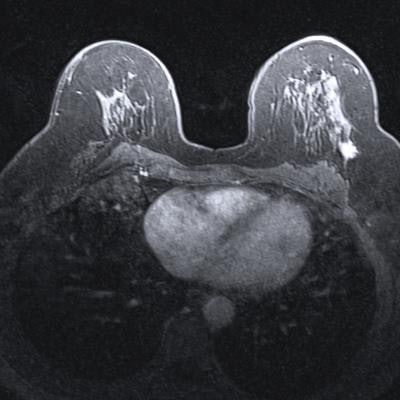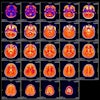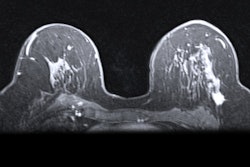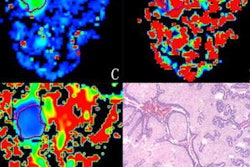
In women with ductal carcinoma in situ (DCIS), whether they chose local excision or mastectomy can be affected by diagnostic information from MRI and their surgeon's recommendation, according to research published May 10 in JAMA Network Open.
A team led by Dr. Soudabeh Fazeli from the University of California, San Diego found significant associations between women's preference for type of surgery and their age, treatment goals, and concerns before receiving MRI. The researchers also found that MRI upstaging, surgeon recommendation, personal importance of keeping the breast, and concerns about cancer affect the surgical option that women choose.
"It's important for clinicians to check in with their patients to ensure that any change in preference is appropriately acknowledged and respected, especially if new information such as from a diagnostic test is available," said corresponding author Dr. Ruth Carlos from the University of Michigan to AuntMinnie.com.
DCIS represents almost 20% of cancer diagnoses in the U.S., according to a 2019 report by the American Cancer Society. Research suggests that the rising prevalence of DCIS is associated with increased use of routine screening mammography.
There are multiple treatment options for DCIS, including mastectomy or wide local excision with or without radiotherapy. The study authors wrote that having multiple options on the table means patient preference is an important part of selecting one over the others. This makes additional diagnostic imaging via MRI important for helping with patient preferences.
However, research on treatment preference, goals, and concerns have usually been conducted among patients with invasive breast cancer rather than those with DCIS.
Fazeli, Carlos, and colleagues wanted to look at three aspects for their research. These include the following:
- Evaluating women's preference for wide lesion excision versus mastectomy before and after MRI and surgeon recommendation
- Finding the amount of agreement between surgery preference and initial surgery received
- Assessing factors linked to surgery preference and initial surgery received
Results were analyzed via odds ratios (OR).
The researchers looked at data from 316 women from 75 different institutions. These institutions included community practices and academic centers across the U.S. Data were collected between March 2015 and April 2016.
The women had an average age of 59.5 years and had recently been diagnosed with unilateral DCIS. They were eligible for wide local excision and had a diagnostic mammogram within three months of study registration.
The study authors found that for pre-MRI age (OR, 0.45) and the importance of keeping one's breast (OR, 0.48) versus removing the breast for peace of mind (OR, 1.35) were linked to surgery preference for mastectomy.
They also found that after MRI and surgeon consultation, MRI upstaging (48 of 316) was linked to patient preference for mastectomy (OR, 8.09). Variables with the highest odds ratios for receiving mastectomy were MRI upstaging (OR, 12.08) and surgeon's recommendation (OR, 4.85). These results were also statistically significant.
Fazeli and colleagues wrote that in their study, younger women were more likely to prefer mastectomy before they received MRI scans. They added that this may be due to higher self-estimated risk for a new primary or recurrent cancer over their lifetime, as well as their perception of mastectomy as a more definitive treatment. The study authors also wrote that reexcision rates in their study reached 21%.
"The most surprising is that women's preferences or choice of surgery were not fixed and may change for a variety of reasons, including more information from the MRI," Carlos added.
The team concluded that their findings highlight the importance of ensuring adequate information and ongoing communication about the clinical significance of MRI findings and the benefits and risks of available treatment options.
Carlos told AuntMinnie.com that the team is looking at the effects of MRI results and the choice of surgery on quality of life.





















